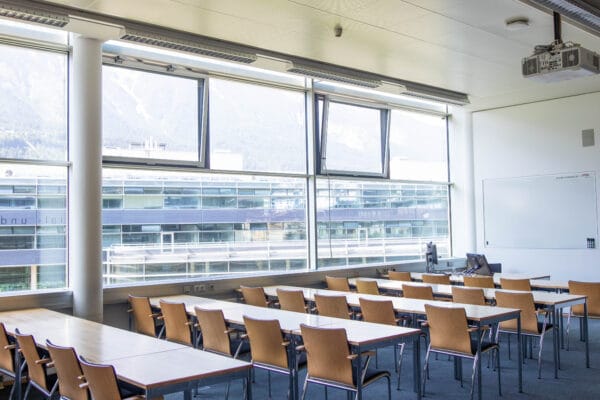
NAME:
MCI - SR 303
BUILDING:
Management Center Innsbruck
FLOOR:
3
TYPE:
Seminar Room
CAPACITY:
54
ACCESS:
Only Participants
EQUIPMENT:
Beamer, Handicapped Accessible, PC, Sound System, Whiteboard, WLAN (Eduroam), Microphones
Adventure tourism scholars have emphasized the importance of promoting microadventures as a sustainable alternative to long-haul travel and a means of supporting locavism (e.g., McKenzie & Goodnow, 2020). Traditional adventure tourism has been widely criticized for its environmental and socio-cultural impacts, including carbon emissions, degradation of fragile ecosystems, commodification of cultural traditions, and economic leakage. In contrast, microadventures – short, local experiences that retain the core elements of adventure, such as physical and mental challenge, skill development, and engagement with nature (e.g., Boudreau et al., 2020) offer a more sustainable and accessible approach to adventure tourism. Their proximity to home makes them more financially viable, time-efficient, and inclusive, while also reducing the environmental footprint associated with travel (McKenzie & Goodnow, 2020). This session examines the integration of microadventures into a university course to deepen students’ understanding of sustainable adventure tourism. We will outline how we designed and implemented microadventure-based field trips—including skiing, snowshoeing, hot springs visits, and guided tours—leveraging our mountain campus as a living laboratory for experiential learning. These experiences introduced students to the theory of place attachment, highlighting its role in fostering more responsible and sustainable mountain travel. Additionally, we will present specific examples of high-impact formative and summative assessments that measure students’ evolving knowledge of sustainable tourism, providing concrete data on their learning outcomes and engagement.

We and use cookies and other tracking technologies to improve your experience on our website. We may store and/or access information on a device and process personal data, such as your IP address and browsing data, for personalised advertising and content, advertising and content measurement, audience research and services development. Additionally, we may utilize precise geolocation data and identification through device scanning.
Please note that your consent will be valid across all our subdomains. You can change or withdraw your consent at any time by clicking the “Consent Preferences” button at the bottom of your screen. We respect your choices and are committed to providing you with a transparent and secure browsing experience.